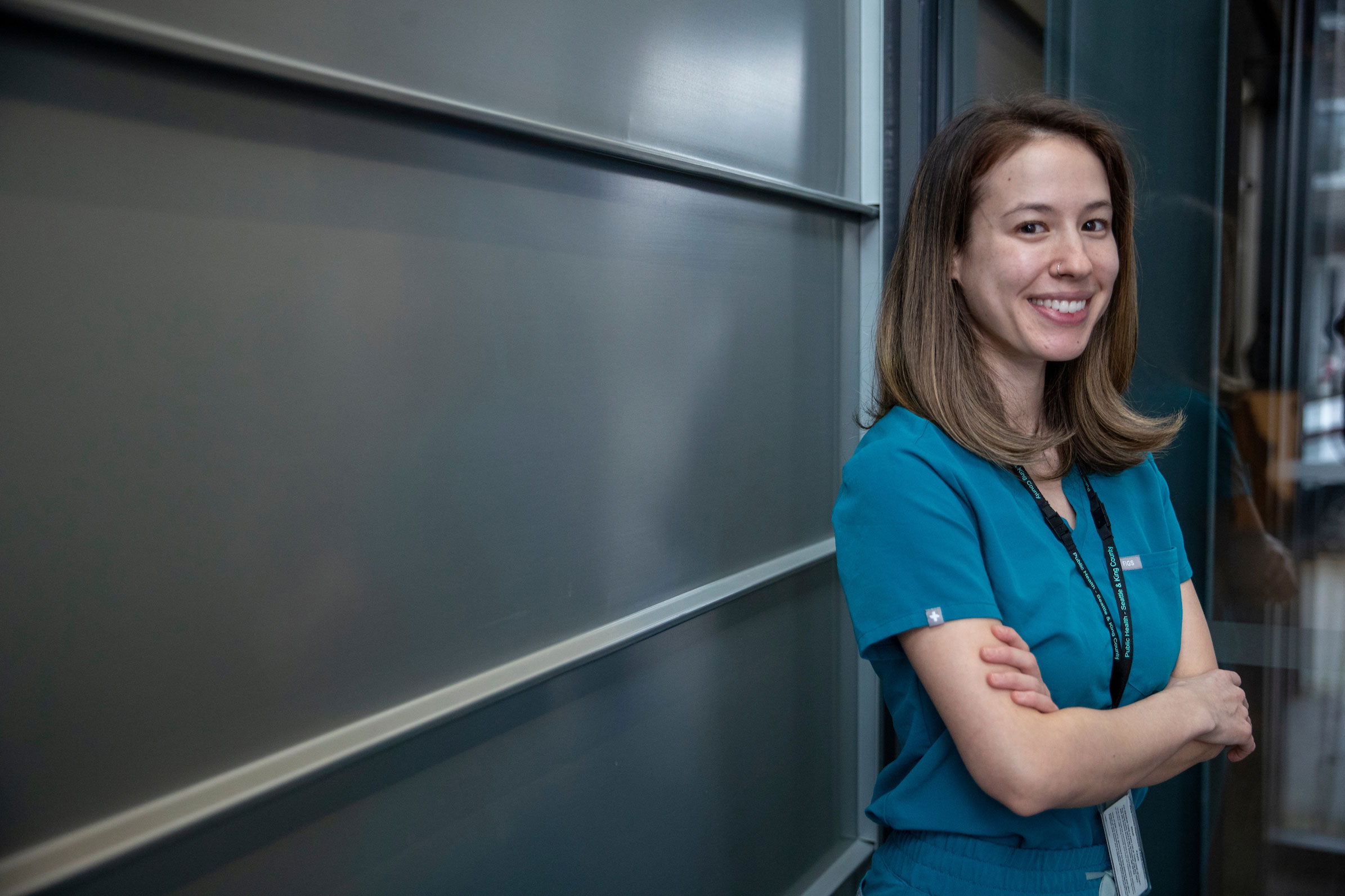
Kayla Shull, ’21
Doctor of Nursing Practice
College of Nursing
In 2014, Kayla Shull earned her undergraduate degrees in Interdisciplinary Studies and Psychology at Seattle University. After working in child development research at the University of Washington, she felt called to work more closely with people. “I wanted to engage my community in a way that is more meaningful to me.”
That led to a career switch to become a nurse and work with substance abuse populations.
“I have a personal family history with some of those things and I feel that addiction should be looked at as a disease, like any chronic disease like diabetes or heart failure,” says Kayla. Today, she works with inmate patients at King County Jail Health Services. Seattle University’s Advance Practice Nursing Immersion Program (APNI) to Doctor of Nursing Practice (DNP) program was Kayla’s first choice for upgrading her skills. “Because I was there for undergrad, I knew the class sizes were small and that the College of Nursing is ranked nationally, so I was excited to be part of it.”
She also valued SU’s approach to nursing. “They push you to think critically and explore the social determinants of health in relation to the work we do in the community. What leads a person to end up in the place they end up, whether it be a methadone clinic or a prison or jail? There is usually some type of trauma story. People are much more than their addictions, much more than their crimes. That’s the reason why I like working with this population because you honor them as humans, not as people who have done bad things and it can be really meaningful for them. And then give them compassion, which I don’t think they get very often.”
Getting a DNP at Seattle University was important to Kayla because she eventually wants to work on policy.
“Jail can be a really poor band aid we place on chronic mental health issues. The majority of people who end up in jail have some kind of untreated mental health issue that could have been addressed in the community,” says Kayla “... If we had more community outreach programs, how would that change the trajectory of someone’s life? We can’t keep doing this cycle where people are in and out of jail and not getting their addictions treated. I eventually want to be in a leadership role addressing some of these systems and community issues.”
As driven as she is, attending the program took courage. Some people come with experience in nursing tech or as certified nursing assistants who already know the basics. But Kayla had to start from the beginning.
“I was fumbling around with blood pressure cuffs and I almost fainted when we did injections. But for anyone considering the program who really loves being in environments of learning and challenging themselves, it’s a big undertaking but it’s worth it.”
